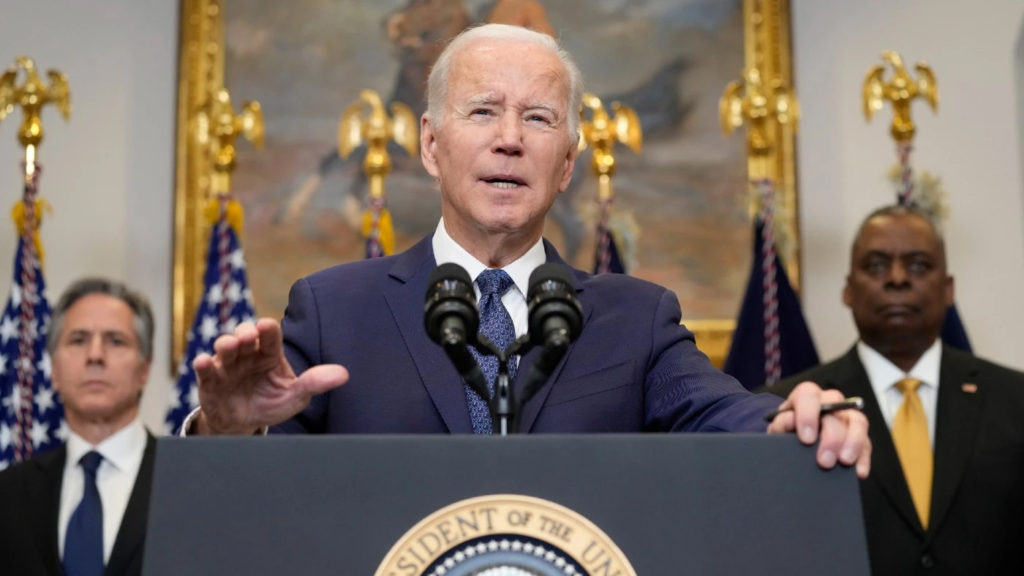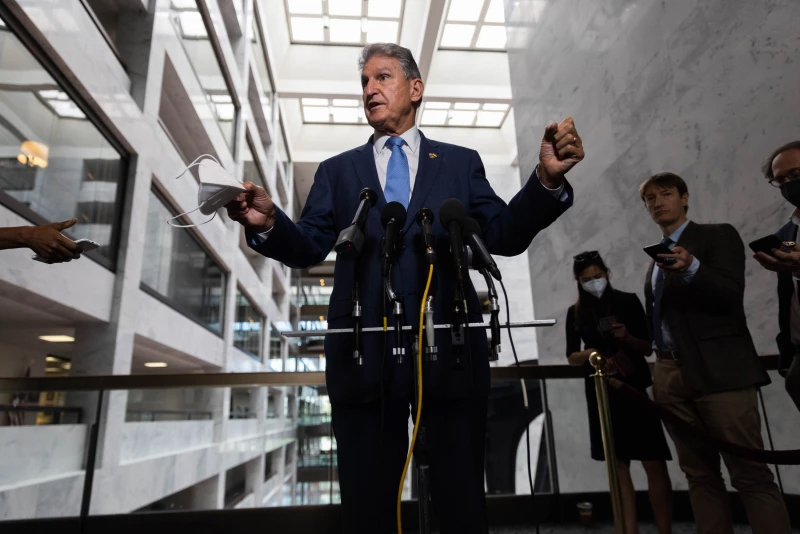Following the repeal of his administration’s ESG rule by Congress, President Biden is now faced with the possibility of issuing his first ever veto in order to defend his administration’s commitment to socially responsible investing.
In a crushing blow to President Biden’s efforts to promote socially responsible investing, the Senate has passed a disapproval resolution, effectively killing the Department of Labor’s ESG investment rule that encourages private retirement plan fiduciaries to consider environment, social, and governance factors when making investment decisions on behalf of over 150 million Americans. The measure, which required only a simple majority to pass, achieved this with a 50-46 vote.
The House of Representatives had already passed the resolution on Tuesday with a narrow vote of 216-204, with only one Democrat crossing party lines to vote for the bill. Speaking to Fox News Digital on Tuesday, the bill’s lead sponsor, Sen. Mike Braun of Indiana, accused the President of jeopardizing the retirement savings of millions of Americans to pursue his political agenda.
Jeopardizing the retirement savings of millions of Americans to pursue his political agenda
With both chambers of Congress now having delivered powerful, bipartisan rebukes to the Biden administration’s ESG agenda, the President may be faced with the unprecedented step of issuing his first ever veto to defend his administration’s commitment to socially responsible investing.
As the disapproval resolution heads to President Biden’s desk after being passed by both the House and Senate, the White House has made it clear that the President is prepared to veto the bill. In a Statement of Administration Policy defending the use of ESG factors in fiduciary decisions, the White House emphasized that the President remains committed to delivering for America’s workers.

“The rule reflects what successful marketplace investors already know – there is an extensive body of evidence that environmental, social, and governance factors can have material impacts on certain markets, industries, and companies,” the White House statement argued, slamming the Trump administration for its efforts to “chill” ESG investments.
While it is unclear whether the President will ultimately veto the bill, the administration’s commitment to promoting socially responsible investing remains steadfast. Whatever the outcome, the passage of this bill marks a significant moment in the ongoing debate over the role of ESG factors in shaping investment decisions.
Should President Biden follow through on his promise to veto the disapproval resolution, Congress would be required to approve the resolution once again, this time with a two-thirds majority vote in both chambers. Such a move would be a significant challenge for opponents of the DOL rule, who have criticized the measure for “politicizing” and “jeopardizing” the retirement savings of over 152 million Americans.
Lawmakers have argued that the ESG investment rule undermines the fiduciary responsibility of retirement plan sponsors, and may result in lower returns for savers. However, proponents of the rule have pushed back, pointing to evidence that suggests ESG factors can have a positive impact on long-term investment performance. With the future of the rule hanging in the balance, the debate over ESG investing is sure to continue in the months and years ahead.

Last month, Sen. Braun and Rep. Barr introduced a bipartisan disapproval resolution that has gained support from all GOP senators, Democratic Sen. Joe Manchin of West Virginia, and over 100 organizations. The resolution was passed by both the House and Senate, setting the stage for a potential veto from President Biden.
GOP senators took the opportunity to discuss the legislation at a press conference, highlighting what they saw as the Biden administration’s hypocrisy in promoting policies that hurt the American public. Sen. Cassidy of Louisiana pointed out that the ESG rule could undermine retirement savings for millions of Americans, particularly those who are already struggling.
“This weaponizes their retirement accounts against both their future, but also their present.”
“This weaponizes their retirement accounts against both their future, but also their present,” he said. “It’s ironic that the same administration that claims to care about the little guy is pushing policies that hurt the very people they claim to help.”
Despite the opposition from Republicans, supporters of the ESG rule argue that the measure is necessary to ensure that retirement plan sponsors are held accountable for considering a broad range of factors when making investment decisions. With the potential for a veto looming, the debate over the role of ESG factors in investing is far from over.



